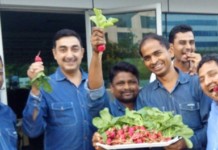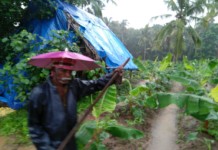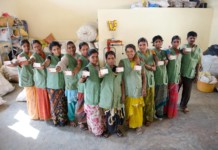An US NGO support, skilled handicraft, local material and market access is a perfect recipe for a successful green enterprise in rural Rajasthan
Tilonia, an accessories brand based in Rajasthan, is yet another example of how rural economies can be connected to world markets and help communities to break the cycle of poverty. The brand draws upon the traditional skills and training of locals to produce a range of handmade textile products. Tilonia is a joint initiative of Friends of Tilonia Inc, a US-based non-profit organization and their partner in India, the Barefoot College.
‘Sustainable Brands’ reports how artisan’s products draw on the cultural heritage of Rajasthan using craft techniques that have been practiced for generations. Block printing, tie dye (bandhej), appliqué, embroidery, hand weaving and leatherwork are all traditional craft skills practiced by rural artisans. Barefoot College has helped artisans to develop cooperatives, develop product designs for contemporary urban markets, and market and sell the handcrafted products both domestically and internationally.
Most of the rural families in Rajasthan depend on subsistence farming. In times of drought, the men migrate to the cities in search of work. The women can earn income from the sewing and needlework enabling them to feed their families and send their children to school.
Sales of Tilonia products provide income to more than 450 artisans in Rajasthan; sales of Avani products provide income to nearly 1,000 farmers and artisans in Uttrakhand in northern India.
Tilonia products use only locally available material such as natural fibers with AZO-free or natural dyes. The block print fabric is cotton and printed with AZO-free dye using hand-carved wooden blocks; the Barefoot handloom is woven from cotton on 4-harness hand looms; Avani silk is hand-spun, naturally dyed and hand-woven; the silk is gathered from silk cocoons raised by local farmers. Fabric is stitched using hand or foot-powered sewing machines.
The challenge for rural enterprises likeTilona is building capacity and more skilled people, greater sales effort, and access to financing to support enterprise growth.











Great job on your blog post! The information was presented in a logical and organized manner, making it easy to follow. I appreciated the practical tips and suggestions you included. click here to delve deeper into this subject.